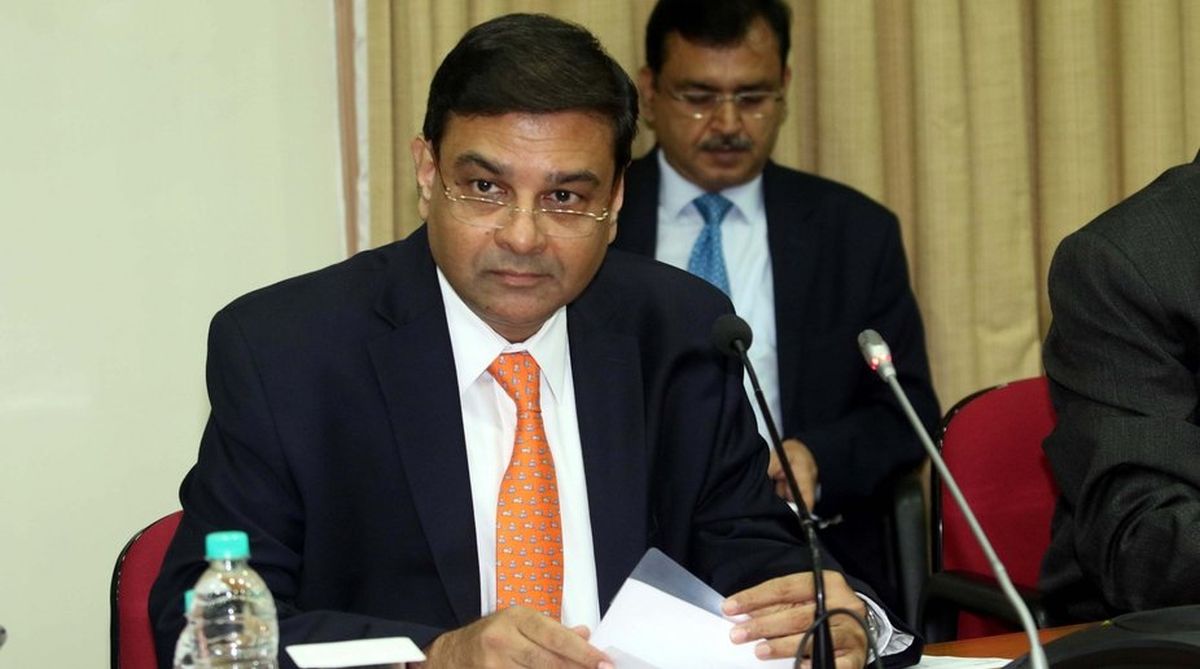PM Modi has already scored a century in two phases: Amit Shah
Shah said the BJP built the temple where Ram was born and brought Kashmir to India.
Patel’s meetings at the PMO came days before the RBI’s crucial board meeting on November 19 during which contentious issues are likely to come up for discussion.

Urjit Patel (Photo: IANS)
Amid mounting tension between the Reserve Bank and the Government over the institutional autonomy of the top bank, RBI Governor Urjit Patel is believed to have met Prime Minister Narendra Modi last week in a bid to work out a solution on contentious issues simmering between the two institutions during the last few weeks.
Sources said Patel was in the national capital on Friday and met senior officials in the Prime Minister’s Office (PMO).
The meetings, which some said also included with the Prime Minister, came amid a face-off between the central bank and the finance ministry over issues ranging from the appropriate size of reserves that RBI must maintain to ease of lending norms to step up growth in an election year.
Advertisement
Sources said there are indications that the RBI may create a special dispensation for lending to small and medium enterprises, but it was not immediately clear if an agreement has been worked out to ease liquidity situation for non-banking finance companies (NBFCs) and the RBI parting with its substantial part of its surplus.
Reports earlier said that the government had invoked never-before-used powers under Section 7 of the RBI Act allowing it to issue directions to the central bank governor on matters of public interest.
Read | Govt confirms ‘extensive consultations’ with RBI amid reports of invoking special powers
Separate letters have been sent to the Reserve Bank of India (RBI) governor in recent weeks, exercising powers on issues ranging from liquidity for non-banking financial companies, the capital requirement for weak banks and lending to small and medium enterprises, the report said.
The rift between the government and the RBI surfaced after Deputy Governor Viral Acharya in a hard-hitting speech pitched for “effective independence” of the central bank.
Acharya had said governments that do not respect central bank’s independence would sooner or later incur the “wrath of financial markets, ignite an economic fire and come to rue the day they undermined an important regulatory institution”.
Acharya emphasised that undermining a central bank’s independence is akin to committing a “self-goal” for any government.
Last week, Economic Affairs Secretary Subhash Chandra Garg had said the government was not in any dire need of funds and that there was no proposal to ask the RBI to transfer Rs 3.6 lakh crore.
He further said the only proposal “under discussion is to fix appropriate economic capital framework of RBI”.
Economic capital framework refers to the risk capital required by the central bank while taking into account different risks. The Reserve Bank of India (RBI) has a massive Rs 9.59 lakh crore reserves.
Patel’s meetings at the PMO came days before the RBI’s crucial board meeting on November 19 during which contentious issues are likely to come up for discussion.
Sources said the government nominee directors and a few independent directors could raise the issue of interim dividend along with the capital framework of RBI.
However, any change in the central bank’s economic capital framework can be carried out only after making amendments to the RBI Act, 1934.
Other issues which could be raised include alignment of capital adequacy norms with those in advanced countries and some relaxation in the Prompt Corrective Action framework, sources said, adding more measures to enhance lending to MSMEs and NBFCs may also be discussed.
Earlier on November 7, former RBI governor Raghuram Rajan had said the central bank is like a seat belt in a car, without which accidents can happen.
Pitching for respecting the institutional autonomy of the RBI, he said the central bank has the liberty to say no if the government pushes it to be lenient.
Ahead of the November 19 meeting of RBI Board, he said the objective of the board is to protect the institution and not serve others’ interests.
Advertisement